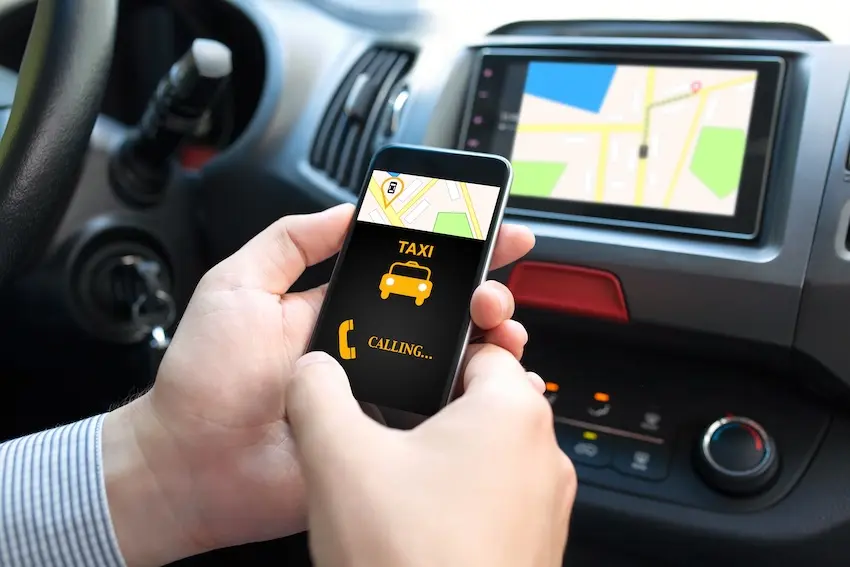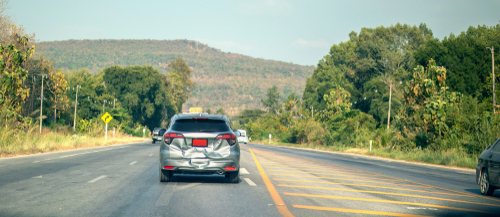Rideshare Accidents and the Complexity of Multiple Insurance Policies
Rideshare services like Uber and Lyft have transformed transportation in Charlotte and across North Carolina. With just a few taps on your smartphone, you can summon a ride from virtually anywhere. However, when accidents involving rideshare vehicles occur, the legal and insurance landscape becomes significantly more complicated than traditional car accidents.
If you’ve been injured in a rideshare accident in Charlotte, understanding how multiple insurance policies interact is crucial to protecting your right to fair compensation. More importantly, attempting to navigate these complex claims without an experienced rideshare accident lawyer often results in denied claims or settlements far below what victims deserve.
At Panchenko Law Firm, our Charlotte rideshare accident attorneys have successfully represented numerous Uber and Lyft accident victims, recovering maximum compensation by expertly navigating the maze of overlapping insurance policies. This guide explains why rideshare accident cases require specialized legal representation.
Why Rideshare Accident Claims Require Specialized Legal Representation
Traditional car accident claims typically involve two insurance policies: the at-fault driver’s liability insurance and possibly your own uninsured/underinsured motorist coverage. Rideshare accidents, however, can involve three, four, or even five different insurance policies, each with specific conditions about when coverage applies.
This is exactly why you need a Charlotte rideshare accident lawyer. Insurance companies representing Uber, Lyft, and rideshare drivers are trained to deny claims, shift responsibility to other insurers, and minimize payouts. Without an attorney who understands rideshare insurance law, you’re at a severe disadvantage.
This complexity exists because rideshare drivers operate in a unique space between personal and commercial use of their vehicles. Understanding which insurance policy applies at the time of your accident requires legal expertise in rideshare company policies, North Carolina insurance law, and how these billion-dollar companies structure their coverage to minimize liability.
The Three Phases of Rideshare Insurance Coverage
Both Uber and Lyft structure their insurance coverage around three distinct phases based on the driver’s status in their app at the time of the accident. The phase determines which insurance policy provides primary coverage.
Phase 1: App Off – Driver’s Personal Insurance Only
When a rideshare driver’s app is turned off, they’re operating as a regular private driver. During this phase, only the driver’s personal auto insurance policy applies. This is the simplest scenario, functioning like any other car accident claim in North Carolina.
However, problems can arise if the driver’s personal insurance company discovers they regularly drive for Uber or Lyft. Many personal auto insurance policies exclude coverage for commercial activities, including rideshare driving. If the insurance company denies the claim on these grounds, you may need to pursue compensation through other avenues.
Phase 2: App On, Waiting for a Ride Request – Limited Coverage
Phase 2 begins when the driver turns on their rideshare app and becomes available to accept ride requests but hasn’t yet received or accepted a request. This is often called the “available” or “waiting” period.
During Phase 2, rideshare companies provide contingent liability coverage, but it’s significantly limited compared to active ride coverage:
Uber’s Phase 2 Coverage:
- $50,000 per person for bodily injury
- $100,000 per accident for bodily injury
- $25,000 per accident for property damage
- Contingent comprehensive and collision coverage (if the driver carries this on their personal policy)
Lyft’s Phase 2 Coverage: Provides similar contingent liability coverage with the same limits as Uber.
This coverage is “contingent,” meaning it only applies if the driver’s personal insurance denies the claim. The rideshare company’s insurance acts as secondary coverage, not primary. This can create disputes about which insurance company should pay, potentially delaying your claim.
Phase 3: Ride Accepted or Passenger in Vehicle – Full Commercial Coverage
Phase 3 provides the most comprehensive coverage. This phase begins when the driver accepts a ride request and continues until the passenger exits the vehicle and the driver ends the trip in the app.
During Phase 3, both Uber and Lyft provide substantial commercial insurance coverage:
Uber’s Phase 3 Coverage:
- $1 million in third-party liability coverage
- $1 million in uninsured/underinsured motorist coverage
- Contingent comprehensive and collision coverage
Lyft’s Phase 3 Coverage:
- $1 million in third-party liability coverage
- $1 million in uninsured/underinsured motorist coverage
- Contingent comprehensive and collision coverage
This $1 million policy covers injuries to passengers, other drivers, pedestrians, and property damage. However, even with this substantial coverage, claims can still become complicated due to disputes over liability, coverage interpretation, and claim valuation.
If you were injured during Phase 3, you have access to $1 million in coverage—but only if you have an experienced rideshare accident attorney fighting for you. Uber and Lyft’s insurance companies aggressively defend these claims despite the high policy limits. Don’t attempt to negotiate with billion-dollar insurance companies on your own.
The Challenge of Determining Which Phase Applied
One of the most complex aspects of rideshare accident claims is determining which phase the driver was in at the moment of the accident. This determination is critical because it dictates which insurance policy provides coverage and how much coverage is available.
Consider these challenging scenarios:
Scenario 1: The Driver Claims the App Was Off A rideshare driver causes an accident and tells their personal insurance company the app was off. The insurance company pays the claim. Later, you discover through investigation that the driver’s app was actually on, making you eligible for Uber or Lyft’s higher coverage limits. The driver may have lied to avoid personal insurance cancellation or higher premiums.
Scenario 2: The Driver Just Accepted a Ride An accident occurs seconds after the driver accepted your ride request. Uber or Lyft may argue the driver was still in Phase 2 when the accident occurred, while you argue Phase 3 had begun. The difference could be $950,000 in available coverage.
Scenario 3: The Driver Ended the Trip in the App Before Dropping You Off The driver drops you off but had already ended the trip in the app moments earlier to avoid paying Uber/Lyft their commission on a longer trip. If an accident occurs during this time, the rideshare company may deny coverage, claiming you were no longer an active passenger.
These disputes require thorough investigation, including obtaining app data, GPS records, trip logs, and sometimes testimony from the rideshare driver. Panchenko Law Firm has experience compelling rideshare companies to produce this critical evidence.
Why You Need a Charlotte Rideshare Accident Lawyer for Phase Disputes
Insurance companies won’t voluntarily hand over evidence that increases your claim value. An experienced rideshare accident attorney knows exactly what evidence to demand, how to obtain it through legal channels, and how to use it to prove which phase applied.
Panchenko Law Firm’s rideshare accident lawyers have successfully recovered millions in cases where insurance companies initially denied coverage by claiming the wrong phase applied. We know how to:
- Subpoena app data and GPS records directly from Uber and Lyft
- Analyze driver trip logs and earnings reports
- Work with digital forensics experts to establish precise timelines
- Counter false statements from drivers trying to avoid liability
- Identify contradictions in insurance company positions
Attempting to prove phase status without legal representation typically results in claim denials. Don’t let insurance companies take advantage of you.
Multiple Liable Parties in Charlotte Rideshare Accidents
Rideshare accidents can involve multiple potentially liable parties beyond just the rideshare driver, each with their own insurance coverage:
The Rideshare Driver
The driver’s personal auto insurance may provide coverage depending on the phase and whether their policy excludes rideshare activities.
The Rideshare Company (Uber or Lyft)
The company’s commercial insurance provides coverage during specific phases, but the company will aggressively defend claims to minimize payouts.
Other Drivers
If another driver caused the accident, their liability insurance would be the primary source of compensation. The rideshare driver or company may also share liability.
The Vehicle Owner
If the rideshare driver was using someone else’s vehicle (with permission), that vehicle owner’s insurance policy might also apply.
Third Parties
In some cases, municipalities (for dangerous road conditions), vehicle manufacturers (for defects), or others may share liability.
Identifying all potentially liable parties and their insurance coverage sources is essential to maximizing your compensation, especially when injuries are severe and damages exceed any single policy’s limits.
Common Disputes in Charlotte Rideshare Accident Claims
Rideshare accident claims frequently involve disputes that don’t typically arise in traditional car accident cases:
Coverage Denials Based on App Status
Insurance companies may dispute which phase the driver was in, potentially denying coverage entirely or offering significantly reduced settlements. Without a rideshare accident lawyer who knows how to obtain and analyze app data, you have no way to prove your case.
Driver Misrepresentation
Drivers may misrepresent their app status to their personal insurance company to avoid coverage exclusions, creating complications when the truth emerges. An experienced Uber accident attorney knows how to uncover these misrepresentations and hold the right parties accountable.
Delayed Claims Processing
When multiple insurance companies are involved, each may delay the claims process hoping another insurer will accept responsibility, leaving you without compensation while you recover from injuries. A Charlotte rideshare accident lawyer can push all insurers simultaneously to prevent these delay tactics.
Insufficient Personal Insurance
Many rideshare drivers carry only North Carolina’s minimum liability coverage ($30,000 per person, $60,000 per accident), which is inadequate for serious injuries. Accessing the rideshare company’s $1 million policy becomes critical—and impossible without legal representation that knows how to pierce through insurance company denials.
Gaps in Coverage
Certain situations may create coverage gaps where no insurance clearly applies, such as when a driver is transitioning between phases or when app malfunctions aren’t properly documented. Only an experienced Lyft accident lawyer can identify alternative coverage sources and legal theories to recover compensation in these gap situations.
Why You Cannot Successfully Handle a Rideshare Claim Without a Lawyer
Many accident victims mistakenly believe they can handle rideshare claims on their own to avoid attorney fees. This is a costly mistake that virtually always results in:
Denied Claims: Insurance companies deny claims filed by unrepresented claimants at much higher rates, knowing victims don’t have the legal knowledge or resources to challenge denials effectively.
Lowball Settlements: Studies show that represented claimants recover 3-4 times more compensation than unrepresented victims, even after attorney fees.
Missed Deadlines: Missing procedural deadlines, failing to properly preserve evidence, or not identifying all coverage sources costs you thousands or eliminates your claim entirely.
Permanent Harm: Once you accept a settlement without legal representation, you cannot reopen your claim later—even if you discover you accepted far less than your case was worth.
Panchenko Law Firm’s rideshare accident attorneys work on contingency, meaning we only get paid if we win your case. Our fee comes from the recovery we secure for you—a recovery that is typically far higher than what unrepresented victims obtain on their own.
North Carolina’s Contributory Negligence Rule Adds Another Layer
North Carolina follows a strict contributory negligence rule, which states that if you are even 1% at fault for causing the accident, you cannot recover any compensation from other parties. This harsh rule makes rideshare accident claims even more challenging.
Rideshare companies and their insurance carriers often argue that passengers contributed to accidents by distracting the driver, failing to wear seatbelts, or other alleged negligence. Successfully defending against these arguments requires skilled legal representation that understands both rideshare operations and North Carolina’s unique negligence laws.
What to Do After a Charlotte Rideshare Accident
If you’re involved in a rideshare accident in Charlotte, take these important steps:
Immediately After the Accident:
- Seek medical attention, even if injuries seem minor
- Call 911 to report the accident and obtain a police report
- Document the scene with photos of vehicles, injuries, road conditions, and any visible damage
- Collect information from all drivers involved, including insurance details
- Obtain contact information from witnesses
- Preserve evidence of your rideshare trip (screenshots of the app showing driver info, trip details, and fare)
In the Days Following: 7. Contact a Charlotte rideshare accident lawyer immediately—before talking to any insurance companies 8. Report the accident to Uber or Lyft through their app (but do not provide detailed statements) 9. CRITICAL: Do not provide recorded statements to any insurance company without legal representation from Panchenko Law Firm 10. Keep detailed records of all medical treatment, expenses, and how injuries impact your daily life 11. Do not accept any settlement offers without having a rideshare accident attorney review them first
The single most important step is hiring an experienced rideshare accident lawyer before insurance companies lock you into statements or lowball settlements. Insurance adjusters for Uber, Lyft, and their drivers will contact you quickly—sometimes within hours—hoping to get recorded statements or quick settlements before you understand your rights.
Every statement you make can be used against you. Every settlement you accept is final. Protect yourself by contacting Panchenko Law Firm before communicating with any insurance company.
How Panchenko Law Firm Handles Complex Rideshare Claims
At Panchenko Law Firm, we’ve developed specific strategies for navigating the complexity of rideshare accident claims in Charlotte and throughout North Carolina:
Thorough Investigation: We immediately investigate to determine which phase the driver was in, often obtaining app data and GPS records that rideshare companies don’t voluntarily provide.
Insurance Policy Analysis: We analyze all potentially applicable insurance policies to identify every possible source of compensation.
Expert Resources: We work with accident reconstruction experts, economists, and medical professionals who can strengthen your claim and counter insurance company arguments.
Aggressive Negotiation: We negotiate directly with multiple insurance companies simultaneously, ensuring no coverage source is overlooked while preventing insurers from shifting responsibility to each other.
Trial Readiness: When fair settlement isn’t possible, we’re prepared to take your case to trial. Our litigation experience gives us leverage in negotiations.
The Importance of Acting Quickly
Rideshare accident claims have strict deadlines. North Carolina’s statute of limitations gives you three years from the accident date to file a personal injury lawsuit. However, waiting that long can seriously damage your case.
Critical evidence like app data, GPS logs, and driver records may be deleted or become inaccessible over time. Witnesses’ memories fade. Medical documentation linking injuries to the accident becomes harder to establish. Insurance companies use delays against you, arguing that injuries weren’t serious if you waited to seek treatment or legal help.
Additionally, Uber and Lyft require accident reports within specific timeframes. Missing these internal deadlines can complicate claims even if you’re still within the legal statute of limitations.
Get Experienced Charlotte Rideshare Accident Lawyer Representation Now
Rideshare accidents involve legal and insurance complexities that victims cannot successfully navigate alone. The interplay of multiple insurance policies, the unique phases of rideshare coverage, disputes over app status, and North Carolina’s harsh contributory negligence rule make hiring an experienced Uber accident lawyer or Lyft accident attorney essential.
Insurance companies representing rideshare companies employ teams of adjusters and lawyers whose sole job is to deny or minimize your claim. Without equally experienced legal representation on your side, you’re fighting a losing battle.
Panchenko Law Firm’s Charlotte rideshare accident attorneys level the playing field. We have the knowledge, resources, and litigation experience to handle every aspect of your claim, from investigating which insurance policies apply to negotiating with multiple insurance companies and, when necessary, taking your case to trial.
Why Choose Panchenko Law Firm for Your Charlotte Rideshare Accident Case
- Specific Rideshare Experience: We’ve successfully handled Uber and Lyft accident claims throughout North Carolina
- We Know the Insurance Tactics: Our attorneys understand how rideshare insurance companies operate and how to counter their strategies
- Maximum Compensation: We’ve recovered millions for injury victims by identifying all available insurance coverage sources
- No Upfront Costs: We work on contingency—you pay nothing unless we win your case
- Free Consultation: We’ll review your rideshare accident claim at no cost and with no obligation
Don’t let insurance companies take advantage of you. Contact Panchenko Law Firm today at (704) 900-7675 for a free consultation about your Charlotte rideshare accident claim. We’ll evaluate your case, explain which insurance policies should cover your injuries, and fight to secure the full compensation you deserve.
Call now or visit our website to schedule your free case review. The sooner you contact a rideshare accident lawyer, the better your chances of maximum recovery.
Panchenko Law Firm – Charlotte’s Trusted Rideshare Accident Lawyers
Experienced Uber & Lyft Accident Attorney Representation | Serving Charlotte and All of North Carolina
Free Case Evaluations | No Fees Unless We Win | Call Today
Injured in an Uber or Lyft accident in Charlotte? Don’t face insurance companies alone. Contact Panchenko Law Firm’s rideshare accident attorneys now for your free consultation.







